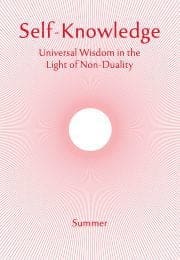Seeking Perfection Where It is to be Found
There is a river of knowledge
That has no banks, no source and no mouth!
It is light, pure light,
and is hidden in every human heart.
Swami Nirbhayananda
The teachings on non-duality are concerned with our innate desire for ultimate and lasting fulfilment. They provide a way of practice which leads to peace of mind. Peace of mind is not an end in itself. Peace is the inner condition which allows the revelation within our own being of a unique form of knowledge—the knowledge which satisfies forever.
This knowledge is hidden in every human heart. One of the words found in the Upanishads that is used to indicate the nature of this knowledge is Purna—perfection. It can also be translated as infinite, and again as fullness, completeness. The root meaning of purna is to fill. And this knowledge is awaiting discovery within us. It is the supreme wisdom and is perfect in every sense of that word, being free from defect, everlasting, and the essence of beauty and blissfulness.
At this point, we may be thinking that this is all idealism, a utopian vision that has no correspondence with reality. This is because our human experience, with its limitations, seems to prove that perfection is beyond our reach. Our joys in the world are mingled with anxieties and the fear of loss. Our knowledge, however learned we may appear to be, is puny compared with what we do not know. We live our life, and then vanish into an obscurity of which we have no certain knowledge. So this idealistic world view that non-duality seems to stand for, can only be based on delusion or wishful thinking.
And yet, in spite of these limitations, human beings do have a sense of perfection—a sense of something being ‘the best’— that permeates much of our activity. We are forever judging things in terms of good, better and best. We want the best, we feel we deserve the best, and in our secret thoughts, we are rooted in the conviction that we are the best.
Subscribe or enrol for free guest access to read all of this article and Self-Knowledge online.
Already subscribed or enrolled? Log in:


